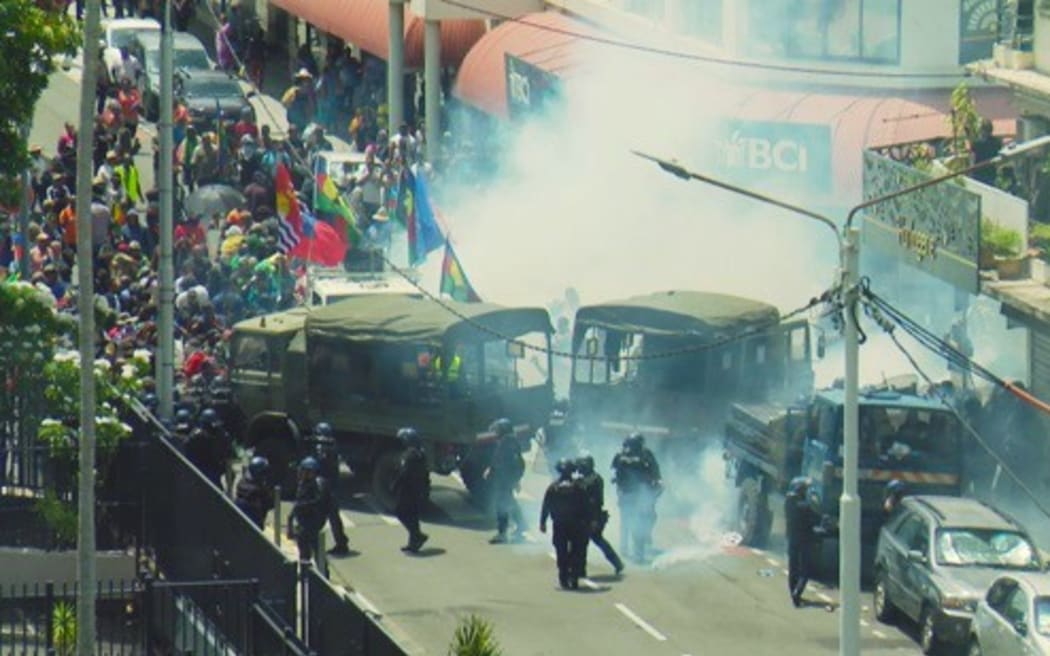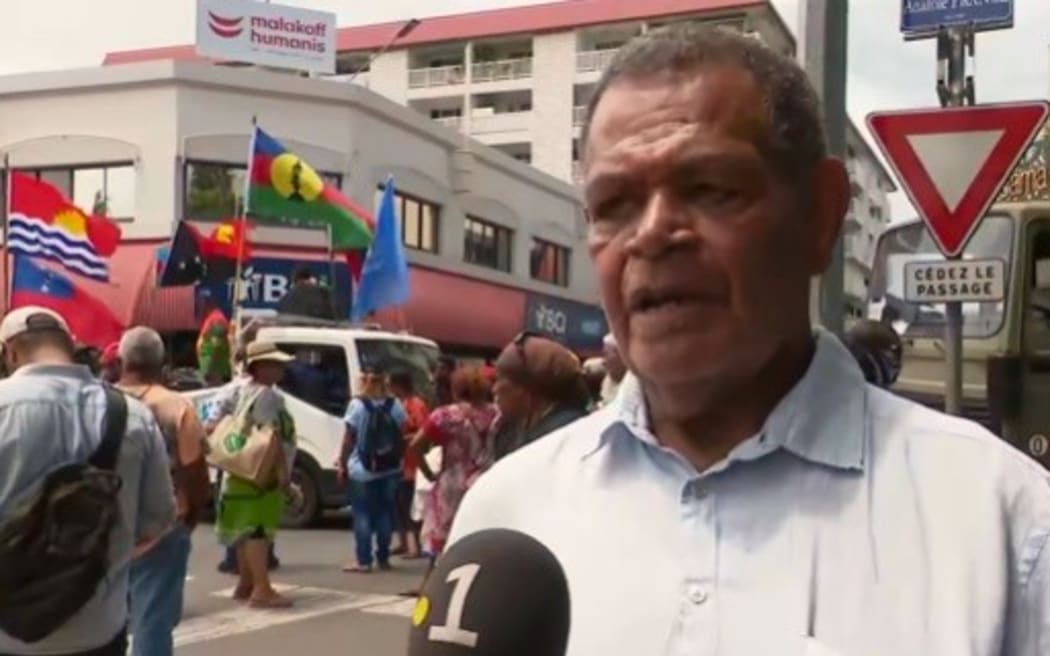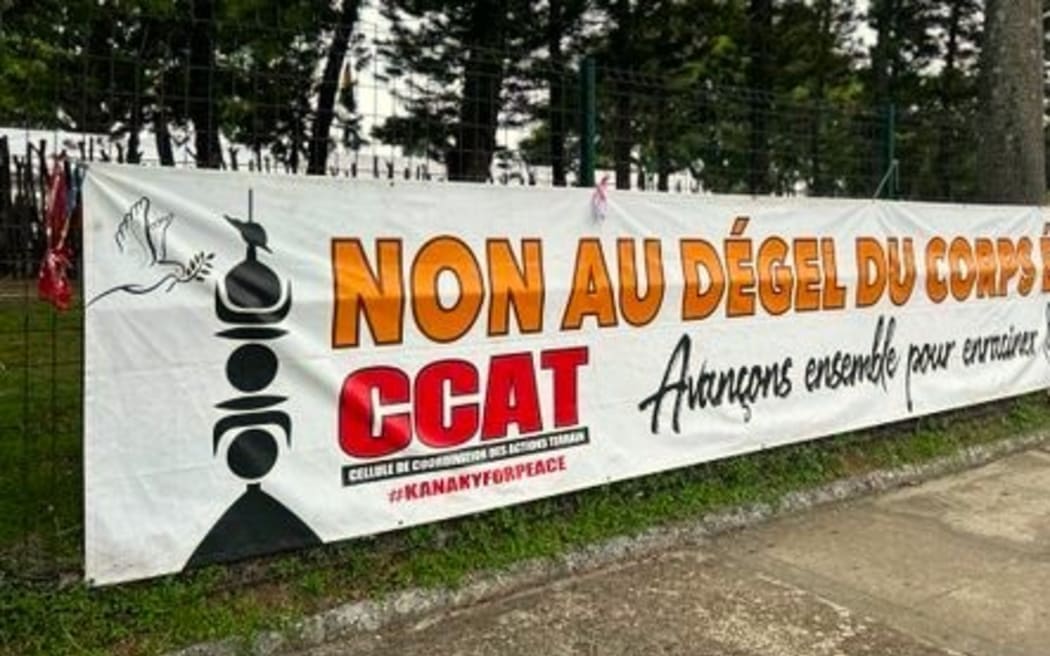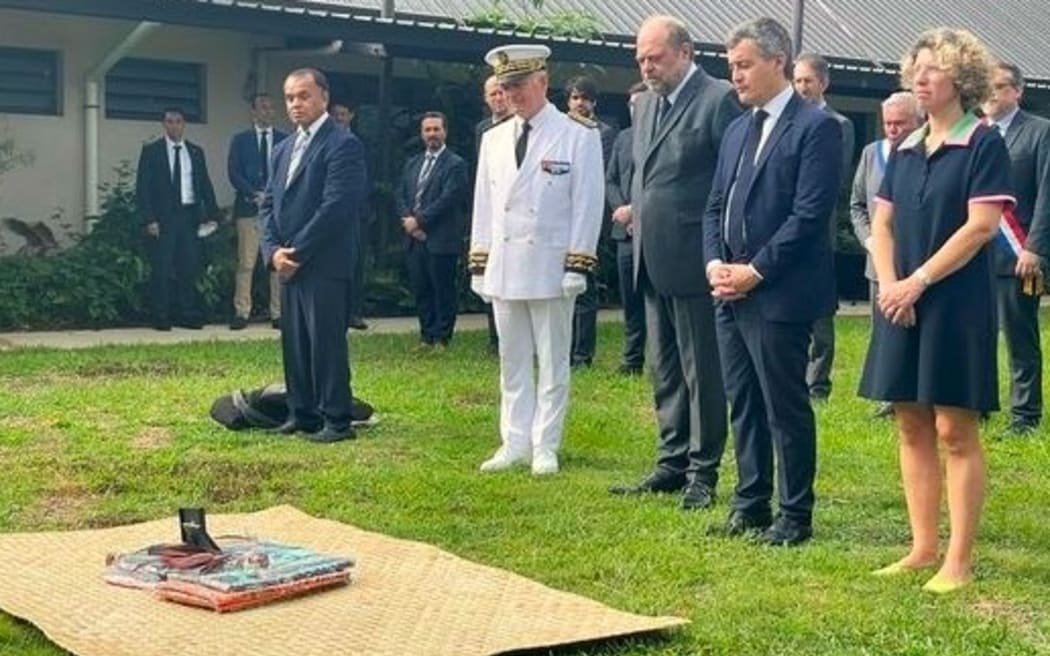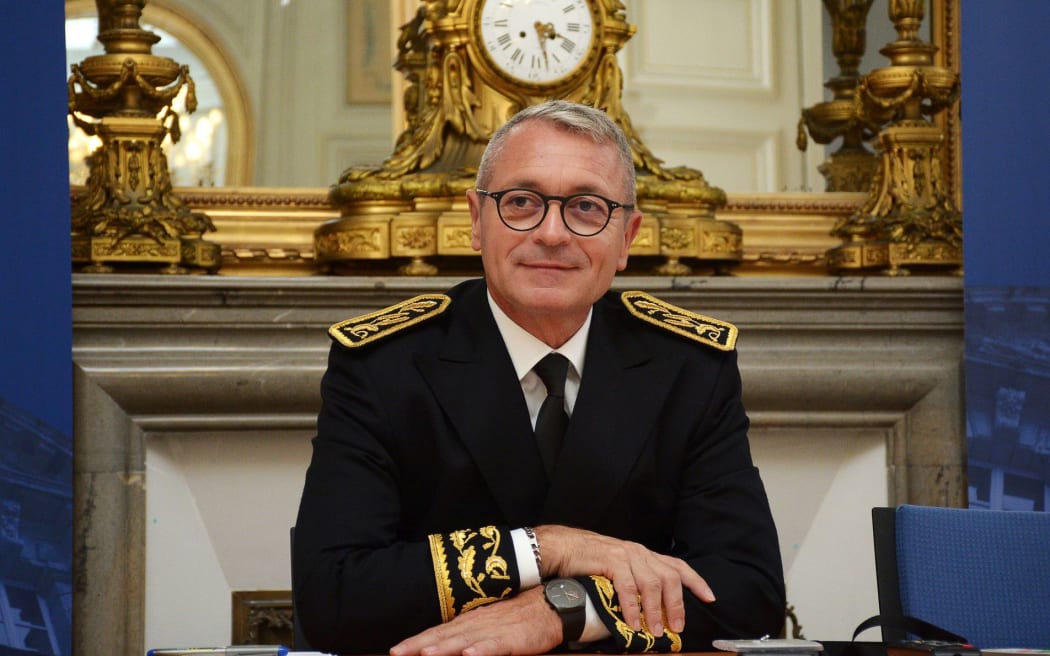ANALYSIS: By Patrick Decloitre, RNZ Pacific correspondent French Pacific desk
An “organic law” to postpone New Caledonia’s provincial elections has passed the final hurdle and been endorsed by the French National Assembly.
During a session on Monday marked by poor attendance (only 104 MPs out of 577) and sometimes heated debates, 71 French MPs voted in favour and 31 against.
Late February, the same Bill was also endorsed by the French Upper House, the Senate, by a large majority of 307 for and 34 against.
The “organic law” effectively moves the date of New Caledonia’s provincial elections (initially scheduled for May 2024) to December 15 “at the latest”.
The date change was clearly designed to provide more time for local politicians to arrive at an inclusive and bipartisan agreement which would lay the foundations for a political agreement and a new institutional status after the Nouméa Accord (signed in 1998) has been in force in the French Pacific archipelago for the past 25 years.
The Accord had prescribed that three self-determination referendums should take place in New Caledonia, which was the case over the past five years.
All three consultations (held in 2018, 2020 and 2021) yielded a narrow “no” to independence, although the third one (held in late 2021) had been contested by the pro-independence movement after a boycott due to the impact of the covid pandemic on indogenous Kanaks.
The Nouméa Accord stipulated that after those three referendums had been held, and if they had resulted in three “no” notes, then politicians should meet and hold forward-looking talks to analyse “the situation thus created”.
Over the past two years, France has tried to create the conditions for those talks to be held, but some components of the pro-independence umbrella FLNKS (Kanak and Socialist National Liberation Front) are yet to join the local and inclusive format of the political talks.
In the pro-French camp, divisions have also surfaced with some parties attending talks but refusing to sit with other pro-French components.
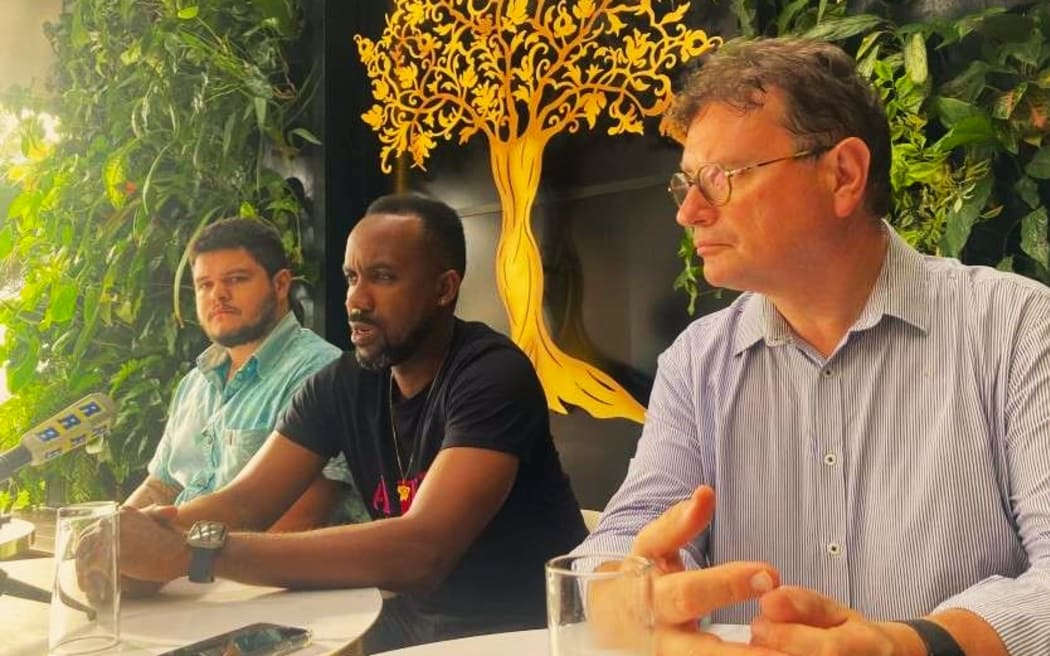
Constitutional changes
The postponement of provincial elections now paves the way for another French government project, promoted by Home Affairs and Overseas Minister Gérald Darmanin — who has visited New Caledonia half a dozen times since 2023 — for a constitutional amendment directly related to New Caledonia’s political future.
The amendment is also related to local elections in the sense that it purports to modify the conditions of eligibility once prescribed, on a transitional basis, by the Nouméa Accord.
What has been since referred to as the “frozen” electoral roll (enforced since 2007) allowed only French citizens who had resided in New Caledonia before 1998 to vote in those provincial elections (for the three parliaments of the Southern, Northern and Loyalty Islands provinces).
The Constitutional amendment, if adopted by the French Congress (a special joint gathering of both the Upper and Lower Houses — the Senate and the National Assembly) by a majority of three fifths, would now change this and allow citizens to vote in the local elections provided they have been residing in New Caledonia for at least 10 uninterrupted years.
Darmanin has on several occasions defended the draft amendment, saying the “frozen” roll was not compatible with France’s “democratic principles” — that it effectively denied about 25,000 citizens (both indigenous Kanaks and non-Kanaks) in New Caledonia the right to vote at the local elections.
The new text would re-introduce “minimal democratic conditions”.
The constitutional amendment has been strongly criticised by pro-independence parties, who fear the “unfrozen” version of the electoral roll would create a situation whereby they could become a minority.
Currently, through the old system, pro-independence parties hold the majority in two of the three provincial assemblies (North and Loyalty Islands) as well as in New Caledonia’s territorial government (presided by a pro-independence leader, Louis Mapou).
The provincial elections results are also crucial in the sense that they are followed by a “trickle-down” effect — the Congress (territorial parliament) makeup is based on their results, and, in turn, the Congress members choose New Caledonia’s President who then chooses a “collegial” government.
“The minimum 10-year period seems perfectly reasonable and those who are against this are in fact against democracy,” Darmanin told reporters during his latest visit to New Caledonia last month.
Constitutional amendment debates
The postponement of provincial elections is designed to give local politicians more time to arrive at a French-desired local, inclusive and consensual agreement on New Caledonia’s political and institutional future.
Darmanin has also repeatedly insisted that if such agreement was reached “before July 1”, the French-drafted constitutional amendment would be replaced by the contents agreed locally and then submitted to the French Congress.
“I’ve always said that if there was a local agreement, even if we were just a few metres away from concluding such an agreement, we would look at the possibility of postponing or even stopping the constitutional process to include the new text,” he stressed last month.
Process gaining momentum
“But for now, all I can see is people not turning up at meetings and not taking their responsibilities,” he added.
The pro-independence umbrella FLNKS is due to hold its Congress on 23 March 23 amid apparent divisions within its component parties.
The French-drafted constitutional amendment is to begin its legislative journey on March 20 before the Senate’s Law Committee, then on March 27 during a Senate debate and then on May 13 before the French National Assembly.
Over the past few days, several French MPs have visited New Caledonia during fact-finding field missions.
The first one was a delegation of four MPs from the French Senate’s Law Committee which met a wide spectrum of local politicians ahead of the March 20 session in Paris.
Over two days, they claim to have held 26 “auditions” with a wide range of political and administrative players in New Caledonia in order to “better understand everyone’s respective positions”.
“Discussions were frank and in a climate of trust”, delegation leader and the Senate’s Law Committee President, Senator François-Noël Buffet, told a press conference on Monday.
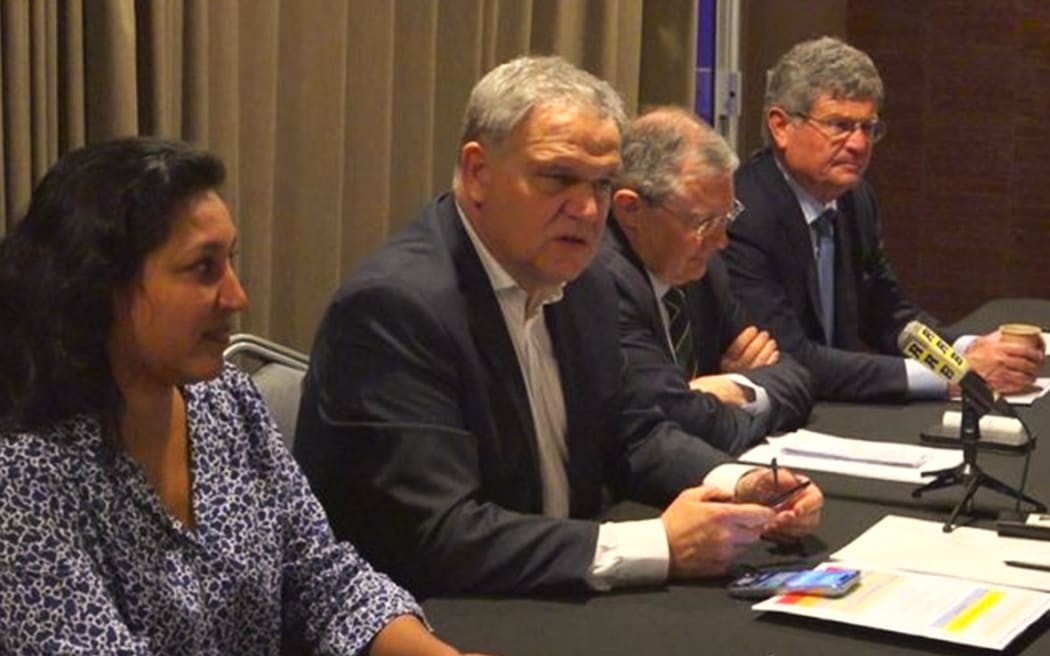
Politicians urged to find their own agreement
“We would have liked an inclusive agreement between all of New Caledonia’s players. But for the time being, it’s not there yet . . . But if an agreement comes, we’ll take it . . . In fact, it would be best if things did not drag for too long,” Buffet said.
Before the senatorial visit, three MPs from the French National Assembly have also spent three days in New Caledonia, as part of a similar fact-finding mission.
But their trip came under a wider mission that also included French Polynesia and Wallis-and-Futuna to study possible statutory and institutional “evolutions” for France’s overseas territories.
They also commented on New Caledonia’s proposed constitutional amendment.
“This is a real tension-generating project . . . It is therefore important that an agreement is found between [New] Caledonia’s politicians and to avoid that the French Parliament has to make a decision on New Caledonia’s future status.
“A decision concerning the future of nearly 300,000 people should not be left to French MPs, who know nothing about New Caledonia’s issues,” MP Davy Rimane told a press conference in Nouméa last Friday.
“So I’m urging my Caledonian colleagues to reach an agreement.”
This article is republished under a community partnership agreement with RNZ.
This post was originally published on Asia Pacific Report.
